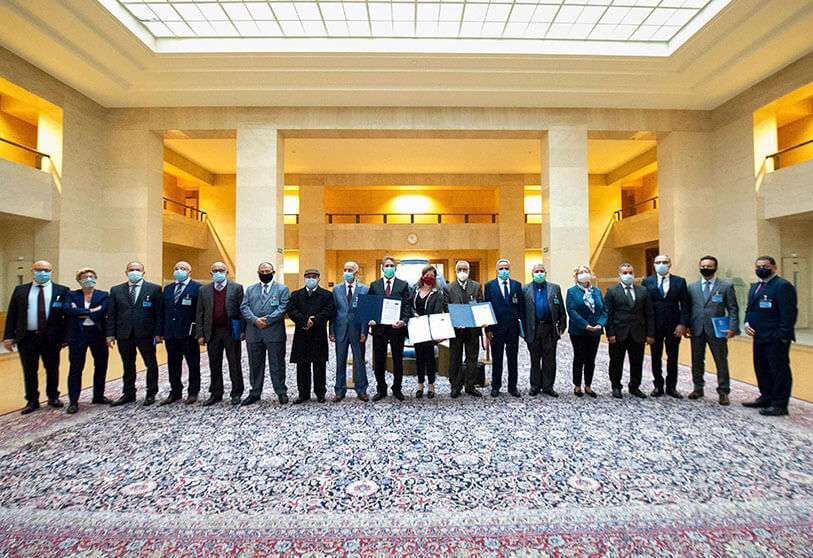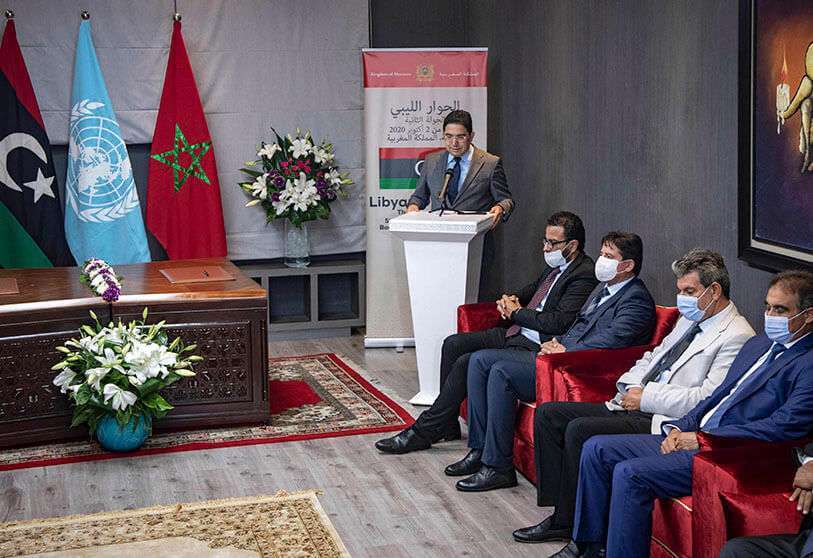Sirte welcomes Libyan 5+5 Joint Military Commission talks

After 18 months of fighting between the parties involved in the Libyan conflict, the peace talks, held in different scenarios - Morocco, Egypt and Switzerland - are returning to the North African country to reach a final solution.
Syrte is a city 400 kilometres from the capital where the National Liberation Army (LNA), led by Marshal Jalifa Haftar, has been stationed. It was here that Muamar El Gaddafi was born and the place where he took refuge before being caught, so the symbolism of this new round of talks is clear. It also has large oil fields.
A week ago, the United Nations made official the return of the Libyan talks to national territory, in the city of Gahdamés. The talks lasted three days and brought together representatives of the 5+5 Joint Military Commission and the acting UN special representative for Libya, Stephanie Williams.
On Monday, the UN mission agreed to hold the second round of the Military Commission in Syrte for a period of three days.
The mission, in a statement, added that this meeting aims to accelerate the implementation of a ceasefire agreement signed on October 23 in Geneva.

n addition, it indicated that the implementation mechanisms of the cessation of hostilities agreement are expected to be completed in this round.
"This round of talks comes after the signing of the permanent ceasefire agreement between the two delegations on October 23 in Geneva, and aims to discuss the implementation mechanisms of the permanent ceasefire agreement, including the establishment of sub-committees, as well as mechanisms for monitoring and verifying the ceasefire," the UN mission to Libya (UNSMIL) explained in a statement on Sunday.
As part of these talks, 12 recommendations were reached on the implementation of a permanent ceasefire in Libya. The recommendations also outlined the formation of a military sub-committee to supervise the return of forces to their headquarters, and the withdrawal of foreign troops from contact lines.
The items agreed include protection of oil facilities, exchange of detainees between the parties - although no further details were given on a prisoner exchange - and the creation of technical teams for mine clearance, airport arrangements and combating hate speech. It also agreed to define the activities of the joint committee on security arrangements in the designated area, to unify the Guard of oil facilities and to open regular trips to Sebha and Ghadames.

The agreement reached in Geneva also put an end to the more than eight months of blockade of oil installations, which are in the hands of the militias that support the LNA.
The pro-Haftar militias blocked the oil installations and forced the National Oil Company of Libya (NOC) to decree "force majeure" in February, at the height of the offensive of the UN-supported Government of National Accord militias in Tripoli (GNA) against Haftar's forces, which had been besieging the capital since April 2019.
Since a NATO-backed uprising defeated Libyan leader Muammar al-Qadhafi, Libya has been shaken by violence. Since then, the country has been dominated by armed groups, divided by local conflicts between two sides: the UN-run Tripoli Government of National Accord (GNA), supported by Turkey, led by Prime Minister Sarraj, and a rival administration in the east of the Haftar-affiliated nation, backed by Egypt, Russia and the United Arab Emirates.








